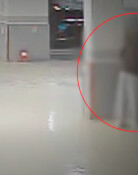Govt, GNP Divided Over Tax Surplus and Innovation Cities
Govt, GNP Divided Over Tax Surplus and Innovation Cities
Posted April. 19, 2008 19:19,
The new administration and the governing Grand National Party (GNP) held their first policy consultation meeting on Friday morning at the prime ministers official residence in Samcheong-dong, Seoul. In attendance were Prime Minister Han Seung-soo, GNP Chairman Kang Jae-sup, and presidential chief of staff Yu Woo-ik. However, the two sides failed to iron out differences over major pending issues, such as a supplementary budget and innovation cities.
The GNP seemed to be trying to take the upper hand over the government. It elaborated on each of the policies that the government had announced without consulting the party, underlining the importance of close consultation and cooperation. In response, the government agreed to discuss its policies with the GNP from the planning stages. The government and the ruling party plan to hold another meeting on April 24 in a bid to review the national agenda and to check on the progress of fulfilling presidential campaign pledges.
▽ Govt Supplementary Budget vs. GNP Tax Cuts
It is feared that this years economic growth rate will be reduced. Economic indices are negative as the country faces increasingly sluggish domestic consumption and employment. We urge you to spend last years budget surplus of 4.9 trillion won as a supplementary budget in order to boost domestic consumption, said Strategy and Finance Minister Kang Man-soo. Out of last years net budget surplus of 15.3 trillion won, 4.86 trillion won has remained after paying local allocation tax and national debt.
Though tax reduction can boost domestic spending, it has limitations as it takes a certain amount of time before the measure takes effect, Kang said.
However, GNP chief policymaker Lee Hahn-koo refuted Kangs claim, saying, We should boost domestic demand through tax cuts rather than a supplementary budget. Lee also added that it would be wiser to spend the budget surplus to write off state debt and stimulate domestic demand through interest rate cuts. The Lee administration pursues a small and practical government. We should seek economic policies that improve potential growth rather than seeking short-term gains.
In this regard, Prime Minister Han took a step back, saying, I hope you understand that the new proposal is not an economic stimulus plan. (The government) will draw out a solution through close cooperation with parties.
▽ Conflicts Between GNP and Govt Over Innovation City Issue
Regarding the governments recent criticism of innovation cities, party leader Kang said, We have lost considerable public trust because of this.
Meanwhile, Prime Minister Han said, The government has yet to decide any changes in its (innovation city) policy. The Board of Audit and Inspection pointed out that the benefits of innovation cities have been exaggerated. We are now reviewing a complementary measure.
In response, Kang urged government officials to help prevent the public from expressing growing concerns over the governments lack of interest in regional development.
▽ GNP Urges Govt to Introduce FTA Counter-Measures
Vice Foreign Minister Kwon Jong-rak, who attended the meeting in place of Foreign Minister Yu Myung-hwan, who is accompanying President Lee to the United States, sought help from the GNP over ratification of the free trade agreement with the United States. It should be concluded as soon as possible before the termination of the 17th General Assembly.
However, GNP chief policymaker Lee rebuked Kwons remark, saying, Its speedy passage is not everything. Though we will try to handle (the bill) during the upcoming extraordinary session of the National Assembly, compensation measures for damage should be urgently drawn up.
When a government official answered that measures had already been prepared, Lee refuted him, saying, Even we are not aware of such measures. They have not been made public nor has any major strategy been satisfactory.
Lee said, We will soon send the countermeasures for the KORUS FTA, which the party has prepared, to the government. I hope the government will take an active role towards embracing it. In response, Han said, Ill give positive consideration to it.
▽ GNP Cautious About Governments School Autonomy Measure
Regarding the Ministry of Education, Science and Technologys plan to give more freedom to schools and to lift bans on after-school and elite classes, Lee Koon-hyun, a senior GNP official, said, The direction is right. The problem was that the ministry announced the measure without giving it much thought. It also lacked a proper democratic process and educational consideration for others.
Lee said, After transferring educational autonomy, we must introduce a measure that will help control the quality of education. We have to make sure not to create a sense of incompatibility by reflecting the opinion of the school, students, as well as parents.







